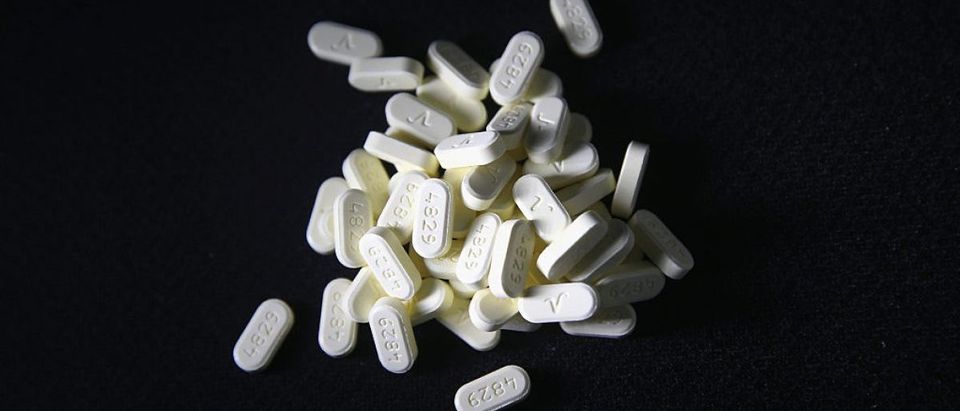Medical professionals are pushing for greater education on addiction recovery and the toll it takes on the brain amid the opioid epidemic which is claiming lives at a record pace.
“I had so many patients, I mean some severe alcoholics and some drug addicts, and I just could not believe that they couldn’t stop,” Dr. Anderson Spickard, an addictionologist with more than 45 years experience, told The Daily Caller News Foundation. “It’s a disease that tells you that you don’t have it, so you don’t admit it. You can’t admit it.”
Drug addiction rewires the brains of addicts overtime to only associate happiness with their substance abuse. The addiction becomes ingrained in their system and actually starts overtaking more rational thoughts, guiding the decisions of the addict. The release of large amounts of dopamine from substance abuse, which makes the user feel euphoric, becomes directly linked to their use. Over time, that connection strengthens, overpowering even the most basic of human instincts, like caring for a child.
The changes addiction makes in the brain are making recovering difficult, and a lack of public knowledge on the subject is derailing attempts by addicts to get clean. (RELATED: Heroin Epidemic Drives Spike In Foster Care, Could Cause Orphanages To ‘Come Back’)
“It’s called hijacking of the brain by dopamine and makes the brain unable to stop,” said Dr. Spickard, emeritus professor of medicine and psychiatry at Vanderbilt University Medical Center. “Dopamine influences the frontal lobe of the brain where you make executive decisions, the hippocampus where you have memories and the middle of the brain where the nucleus is. It is just completely controlling the thoughts, plans and reactions of addicts. All the denial, anger and behaviors the alcoholic and drug addict expresses are just captured and run on their own steam with the dopamine in the neurobiological format.”
The idea that addiction is a disease is only just entering the mainstream conscious of the U.S., which some medical professionals fear is creating roadblocks to education and recovery. Dr. Eric Nestler, an expert on neuroscience, initially had his ideas rejected in the medical community when he first attempted to research how “repeated activation of the opioid receptor” literally changes an addict’s brain. He argues that people still hesitate labeling addiction a disease, because it initially involves a voluntary choice to take a substance.
In his opinion, people need to learn to separate the disease that takes hold of the brain and the voluntary decision the user first made to take a given substance. Nestler notes addiction creates conditions in the brain that “attack free will” and corrupt the rationality of decision making.
“You can’t get away from the cravings,” Dr. Spickard, co-author of The Craving Brain, told TheDCNF. “They will do everything they can to get that next shot, or that next pill or that next intravenous shot of heroin, regardless of what has happened to them, and they can’t stop. They are thinking only about where to get the next hit.”
The constant release of dopamine, interacting with opioid receptors is associating happy feelings in an addict with their drug abuse. Heroin deaths contributed to the first drop in U.S. life expectancy since 1993 and eclipsed deaths from motor vehicle accidents in 2015. The substance accounts for roughly 63 percent of drug fatalities, which claimed 52,404 lives in the U.S. in 2015, according to the Centers for Disease Control and Prevention.
Dr. Spickard says one of the chief problems currently plaguing recovering addicts is a lack of information about how long cravings last. Many rehabilitation programs only require 30 days. Spickard says it takes anywhere from four months to a year for the brain to return to near-normal functioning.
“That’s why the 30 day programs are in many cases a wasted effort, because these rewired synapses in the brain are still stuck in the ‘using’ phase,” said Dr. Spickard. “But if they stay in a halfway house and if they have a good treatment program as part of that recovery time, the brain will then begin establishing good memories in the hippocampus related to sobriety.”
All content created by the Daily Caller News Foundation, an independent and nonpartisan newswire service, is available without charge to any legitimate news publisher that can provide a large audience. All republished articles must include our logo, our reporter’s byline and their DCNF affiliation. For any questions about our guidelines or partnering with us, please contact licensing@dailycallernewsfoundation.org.


